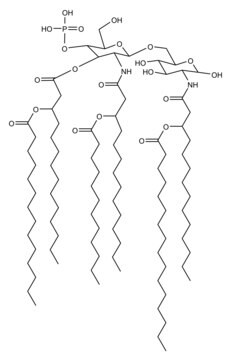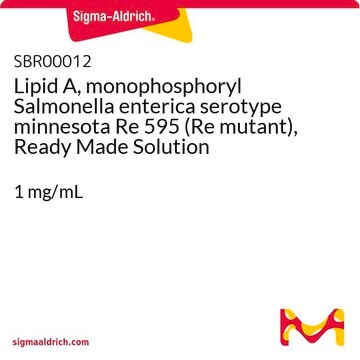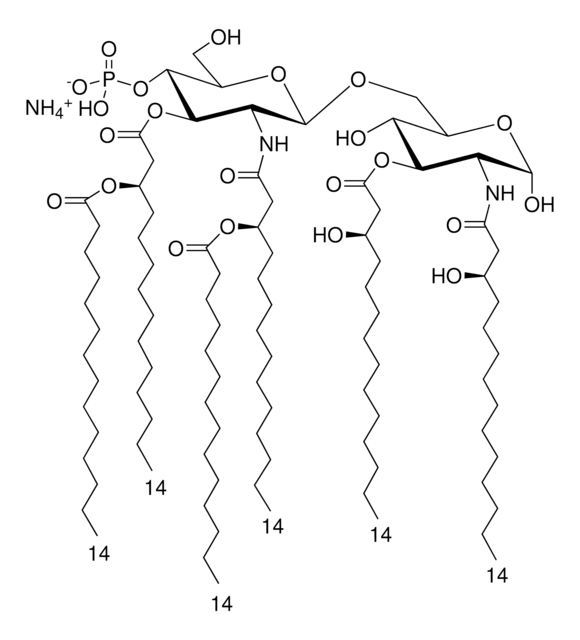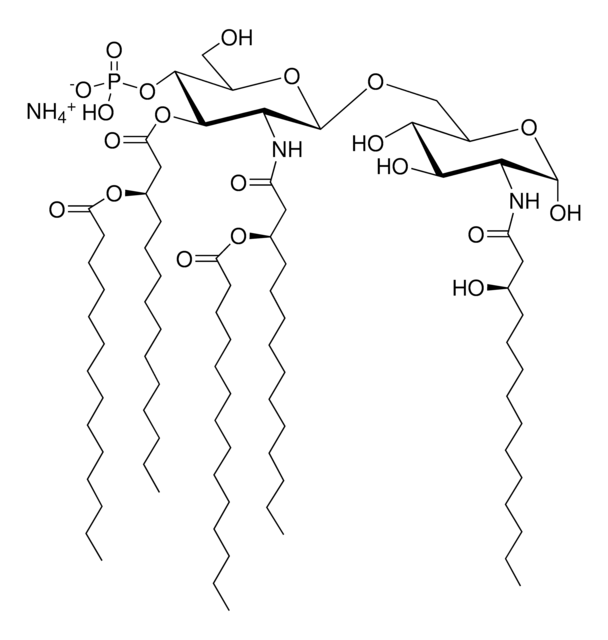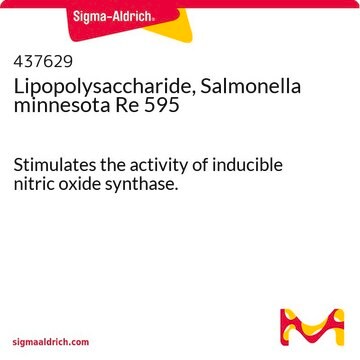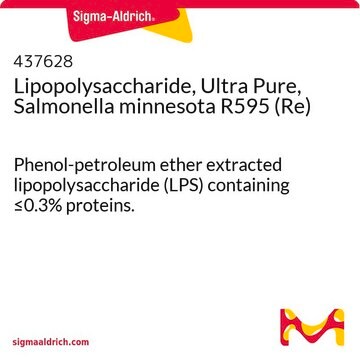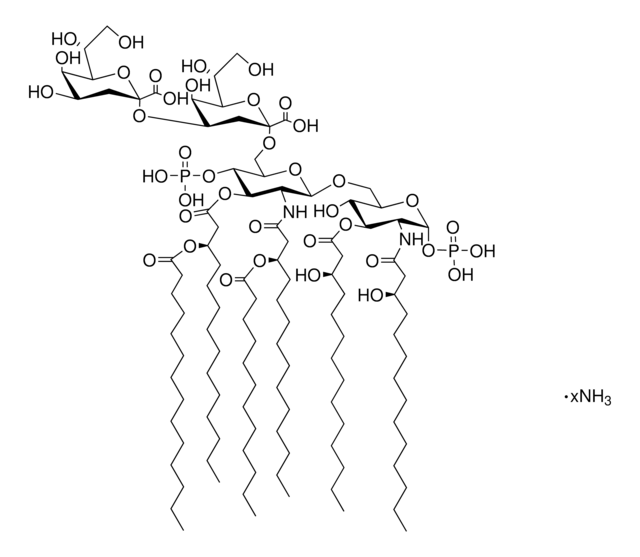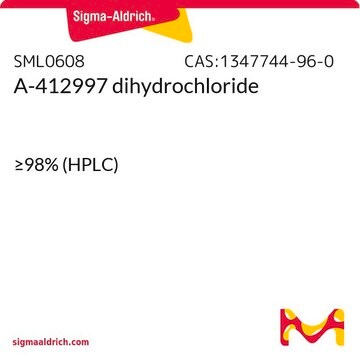L6895
Lipid A, monophosphoryl from Salmonella enterica serotype minnesota Re 595 (Re mutant)
lyophilized powder, TLR ligand tested
Synonym(s):
Monophosphoryl Lipid A from Salmonella
About This Item
Recommended Products
biological source
Salmonella enterica (serotype minnesota Re 595 Re mutant)
Quality Level
form
lyophilized powder
impurities
<0.2% Ketodeoxyoctonate (KDO)
shipped in
ambient
storage temp.
2-8°C
Related Categories
Application
Lipid A, monophosphoryl from Salmonella enterica serotype minnesota Re 595 may be used in comparative assessment of the antigenicity of specific structures within different LPA molecules and analogues.
Biochem/physiol Actions
Storage Class Code
11 - Combustible Solids
WGK
WGK 3
Flash Point(F)
Not applicable
Flash Point(C)
Not applicable
Personal Protective Equipment
Regulatory Listings
Regulatory Listings are mainly provided for chemical products. Only limited information can be provided here for non-chemical products. No entry means none of the components are listed. It is the user’s obligation to ensure the safe and legal use of the product.
JAN Code
L6895-VAR:
L6895-1MG-PW:
L6895-1MG:
L6895-5MG:
L6895-5MG-PW:
L6895-BULK:
Choose from one of the most recent versions:
Certificates of Analysis (COA)
Don't see the Right Version?
If you require a particular version, you can look up a specific certificate by the Lot or Batch number.
Already Own This Product?
Find documentation for the products that you have recently purchased in the Document Library.
Customers Also Viewed
Our team of scientists has experience in all areas of research including Life Science, Material Science, Chemical Synthesis, Chromatography, Analytical and many others.
Contact Technical Service